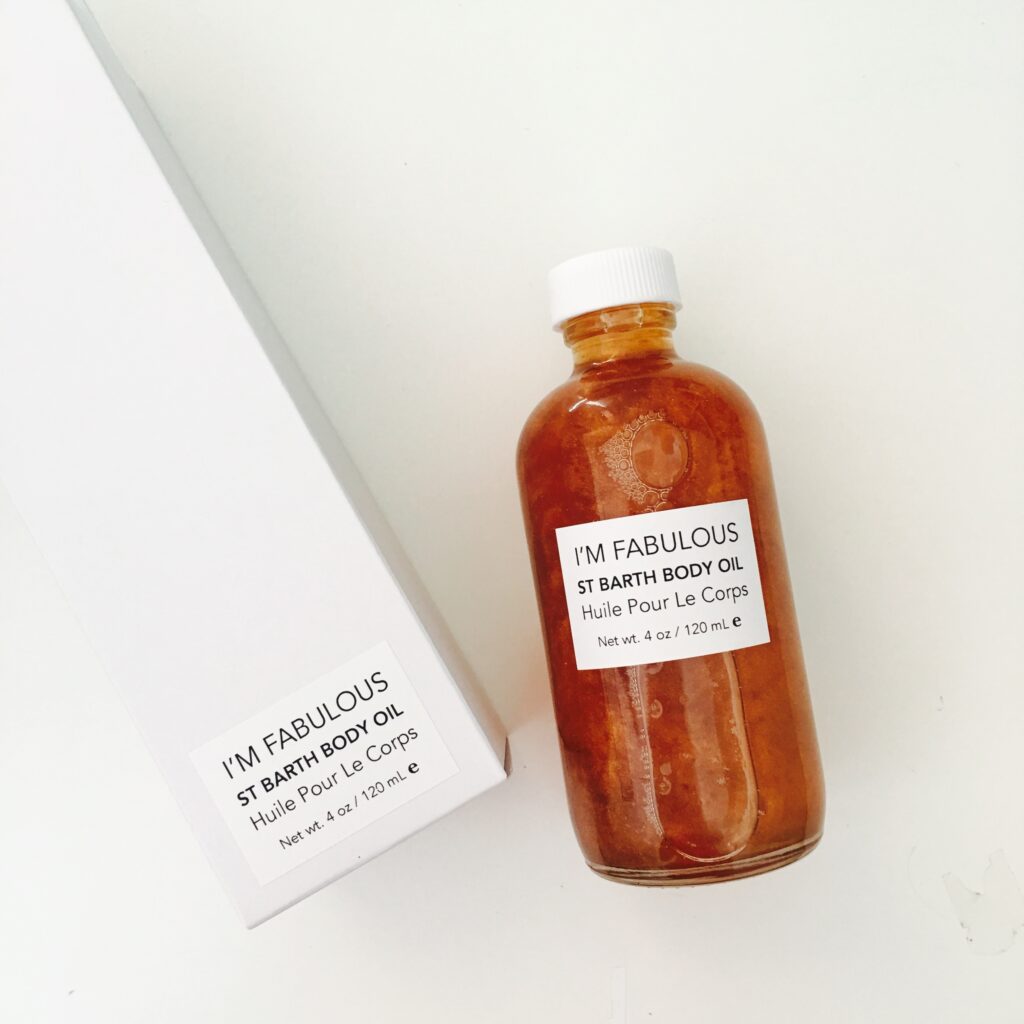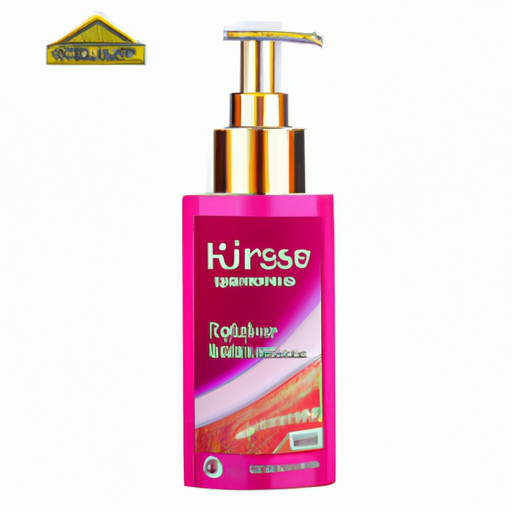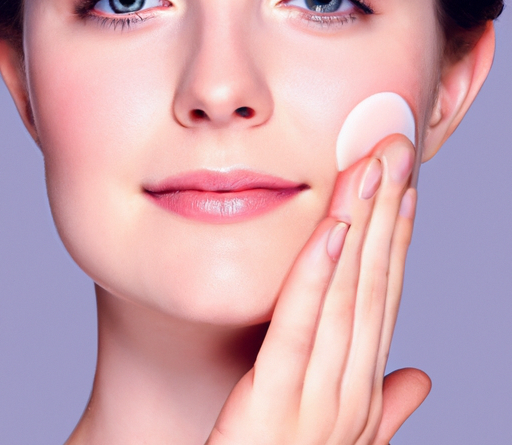So, you want to know how to get smooth skin naturally? Well, here’s the lowdown. Achieving smooth skin doesn’t have to involve fancy products or expensive treatments. Sometimes, the best remedies can be found right in your own home. One tried and true method is exfoliation. By regularly scrubbing away dead skin cells, you can make way for fresh, glowing skin. You can use a gentle scrub made from ingredients like sugar or oatmeal, or even opt for a DIY face mask using ingredients like honey or yogurt. Another great way to promote smooth skin is by staying hydrated. Drinking plenty of water helps to flush out toxins and keep your skin moisturized from within. Additionally, incorporating a healthy diet filled with fruits, vegetables, and antioxidants can contribute to a radiant complexion. Don’t forget the importance of protecting your skin from the sun as well – always remember to wear sunscreen to prevent wrinkles and damage. So, with a little bit of self-care and a few natural remedies, you’ll be well on your way to achieving that coveted smooth skin.

This image is property of images.unsplash.com.
Daily Skin Care Routine
Taking care of your skin is essential for maintaining its health and achieving a smooth and radiant complexion. Incorporating a daily skincare routine into your life can make a significant difference. Here are the steps you should include in your routine:
Cleanse Your Skin
Start by cleansing your skin to remove dirt, oil, and impurities that can accumulate throughout the day. Use a gentle cleanser suitable for your skin type and massage it onto your face in circular motions. Rinse thoroughly with lukewarm water and pat dry.
Exfoliate Regularly
Exfoliating your skin helps remove dead skin cells and reveal a fresh layer of skin. Choose a mild exfoliator, such as a scrub or a chemical exfoliant, and gently massage it onto your skin. Pay attention to areas prone to dryness or congestion, like the T-zone. However, avoid over-exfoliating, as it can cause irritation.
Moisturize Effectively
Moisturizing is a vital step in any skincare routine as it helps replenish and lock in moisture, keeping your skin hydrated and supple. Select a suitable moisturizer for your skin type, whether it is dry, oily, or combination. Apply the moisturizer to your face and neck, using upward motions to promote absorption.
Use Sunscreen
Protecting your skin from harmful UV rays is crucial for maintaining its health and preventing premature aging. Apply a broad-spectrum sunscreen with an SPF of 30 or higher every day, even on cloudy days. Make sure to cover all exposed areas of your skin, including your face, neck, and any other areas susceptible to sun damage.
Stay Hydrated
Drinking an adequate amount of water is not only vital for overall health but also for the health and appearance of your skin. Hydrated skin is plumper and has a natural glow. Aim to drink at least eight glasses of water a day and incorporate hydrating foods, such as fruits and vegetables, into your diet.
Natural Ingredients for Smooth Skin
Nature has provided us with numerous ingredients that can enhance the texture and appearance of our skin. Here are some natural ingredients you can incorporate into your skincare routine:
Aloe Vera
Aloe vera is known for its soothing and healing properties. It helps moisturize the skin and promotes the regeneration of new cells. Apply aloe vera gel directly to your skin or look for skincare products containing this ingredient.
Honey
Honey is a natural humectant, drawing moisture into the skin and helping it retain hydration. It also possesses antimicrobial properties, making it beneficial for acne-prone skin. You can apply raw honey as a face mask or look for skincare products containing honey.
Coconut Oil
Coconut oil is rich in fatty acids that nourish and moisturize the skin, leaving it smooth and supple. It also has antibacterial properties that can help prevent breakouts. Apply a thin layer of melted coconut oil to your skin and let it absorb before proceeding with your skincare routine.
Oatmeal
Oatmeal is gentle yet effective in exfoliating and soothing the skin. It helps remove dead skin cells and calm irritation. You can prepare a simple oatmeal mask by mixing finely ground oats with water or a hydrating ingredient of your choice and applying it to your face for about 10-15 minutes.
Green Tea
Green tea is packed with antioxidants that can help protect the skin from damage caused by free radicals. It also has anti-inflammatory properties that can soothe irritated skin. Brew a cup of green tea, let it cool, and use it as a toner or incorporate it into DIY face masks.
Balanced Diet for Healthy Skin
Achieving smooth skin goes beyond external treatments; it also relies on what you put into your body. Follow these dietary guidelines to support healthy skin:
Eat Fruits and Vegetables
Include a variety of fruits and vegetables in your diet to provide essential vitamins, minerals, and antioxidants that promote skin health. Colorful fruits and vegetables, such as berries, leafy greens, and bell peppers, are particularly beneficial.
Include Healthy Fats
Incorporate healthy fats, such as those found in avocados, nuts, seeds, and fatty fish, into your diet. These fats provide essential fatty acids that nourish and protect the skin, keeping it supple and resilient.
Stay Away from Processed Foods
Processed foods often contain unhealthy trans fats, refined sugars, and artificial additives, all of which can contribute to skin issues like inflammation and breakouts. Opt for whole, unprocessed foods as much as possible to support skin health.
Hydrate Your Body
In addition to hydrating your skin externally, ensure you drink enough water to keep your body hydrated from within. Water helps flush out toxins and keeps your skin plump and radiant.
Get Sufficient Vitamin C
Vitamin C is essential for maintaining skin health. Include foods rich in vitamin C, such as citrus fruits, strawberries, bell peppers, and leafy greens, in your diet. Alternatively, you can consider taking a vitamin C supplement under the guidance of a healthcare professional.
Manage Stress Levels
Stress can have a negative impact on your skin, contributing to various issues like acne, dryness, and dullness. Incorporate stress-relieving activities into your daily routine to promote skin health:
Practice Stress-Relieving Activities
Engage in activities that help you relax and unwind, such as yoga, meditation, deep breathing exercises, or spending time in nature. Find what works best for you and make it a regular part of your routine.
Get Enough Sleep
Adequate sleep is crucial for cellular repair and rejuvenation, including the repair of your skin. Aim for 7-9 hours of quality sleep each night to support healthy skin and overall well-being.
Stay Active
Regular exercise not only benefits your physical and mental health but also boosts circulation, which can contribute to a healthy complexion. Find activities you enjoy and try to incorporate them into your weekly routine.

This image is property of images.unsplash.com.
Avoid Harsh Chemicals and Irritants
Certain skincare products and environmental factors can be harsh on your skin, causing irritation and inflammation. Follow these tips to protect your skin:
Choose Gentle Skincare Products
Opt for skincare products formulated with gentle and non-irritating ingredients. Look for labels that indicate fragrance-free, hypoallergenic, and non-comedogenic to minimize the risk of skin irritation.
Avoid Hot Water
Hot water can strip your skin of its natural oils and leave it feeling dry and irritated. Instead, use lukewarm water when cleansing your face or taking showers to maintain the skin’s natural balance.
Protect Your Skin from Pollution
Air pollution can have damaging effects on the skin, including clogged pores and accelerated aging. Protect your skin by using a physical barrier, such as a scarf or a hat, when outdoors in heavily polluted areas.
Limit Fragrances and Harsh Ingredients
Fragrances and harsh chemicals found in some skincare products can cause skin irritation and allergic reactions. Choose products without added fragrances or opt for natural alternatives whenever possible.
Protect Your Skin from the Sun
Excessive sun exposure can lead to premature aging, sunburn, and an increased risk of skin cancer. Take the following measures to protect your skin from the sun’s harmful rays:
Wear Protective Clothing
Whenever possible, cover your skin with long-sleeved shirts, pants, and wide-brimmed hats to minimize direct sun exposure. Choose clothing with built-in UV protection for additional shielding.
Apply Sunscreen
Apply a broad-spectrum sunscreen with an SPF of 30 or higher to all exposed areas of your skin, including your face, neck, arms, and legs. Reapply every two hours or more frequently if swimming or sweating.
Seek Shade
Seek shade during peak sun hours, typically between 10 a.m. and 4 p.m., when the sun’s rays are the strongest. This will help reduce your overall sun exposure and protect your skin from potential damage.

This image is property of images.unsplash.com.
Natural Face Masks
Face masks can provide additional nourishment and revitalization to your skin. Here are a few DIY face mask recipes using natural ingredients:
Yogurt and Turmeric Mask
Mix plain yogurt with a pinch of turmeric to create a brightening and soothing mask. Apply it evenly to your face and leave it on for 15-20 minutes before rinsing off with lukewarm water.
Avocado and Honey Mask
Mash a ripe avocado and mix it with a tablespoon of honey for a deeply moisturizing mask. Apply a generous layer to your face and leave it on for 15-20 minutes before rinsing off with warm water.
Cucumber and Aloe Vera Mask
Blend cucumber slices with fresh aloe vera gel to create a cooling and hydrating mask. Apply it to your face, relax for 15-20 minutes, and then rinse off with cool water.
Maintain Proper Hygiene
To keep your skin healthy and clear, practice good hygiene habits:
Clean Pillowcases and Towels Regularly
Pillowcases and towels can harbor dirt, oils, and bacteria that can transfer to your skin, leading to breakouts and irritation. Wash your pillowcases and towels regularly using mild, fragrance-free detergents.
Avoid Touching Your Face Too Often
Touching your face with dirty hands can introduce bacteria and other impurities to your skin. Avoid touching your face unnecessarily and always wash your hands before applying skincare products.

Stay Consistent and Patient
When it comes to achieving smooth skin, consistency is key. Stick to your skincare routine and give your skin time to adjust to any new products or treatments. Results won’t happen overnight, so be patient and persistent in your efforts.
Consult a Dermatologist
If you have specific skin concerns or are unsure about the best practices for your skin type, it is advisable to seek professional advice from a dermatologist. A dermatologist can assess your skin condition, provide personalized recommendations, and address any underlying issues that may be affecting your skin’s smoothness and overall health.
Remember, achieving smooth skin naturally involves a holistic approach that combines a consistent skincare routine, healthy lifestyle habits, and the use of natural ingredients. By following these guidelines and remaining patient, you can nurture your skin and achieve the smooth and radiant complexion you desire.







